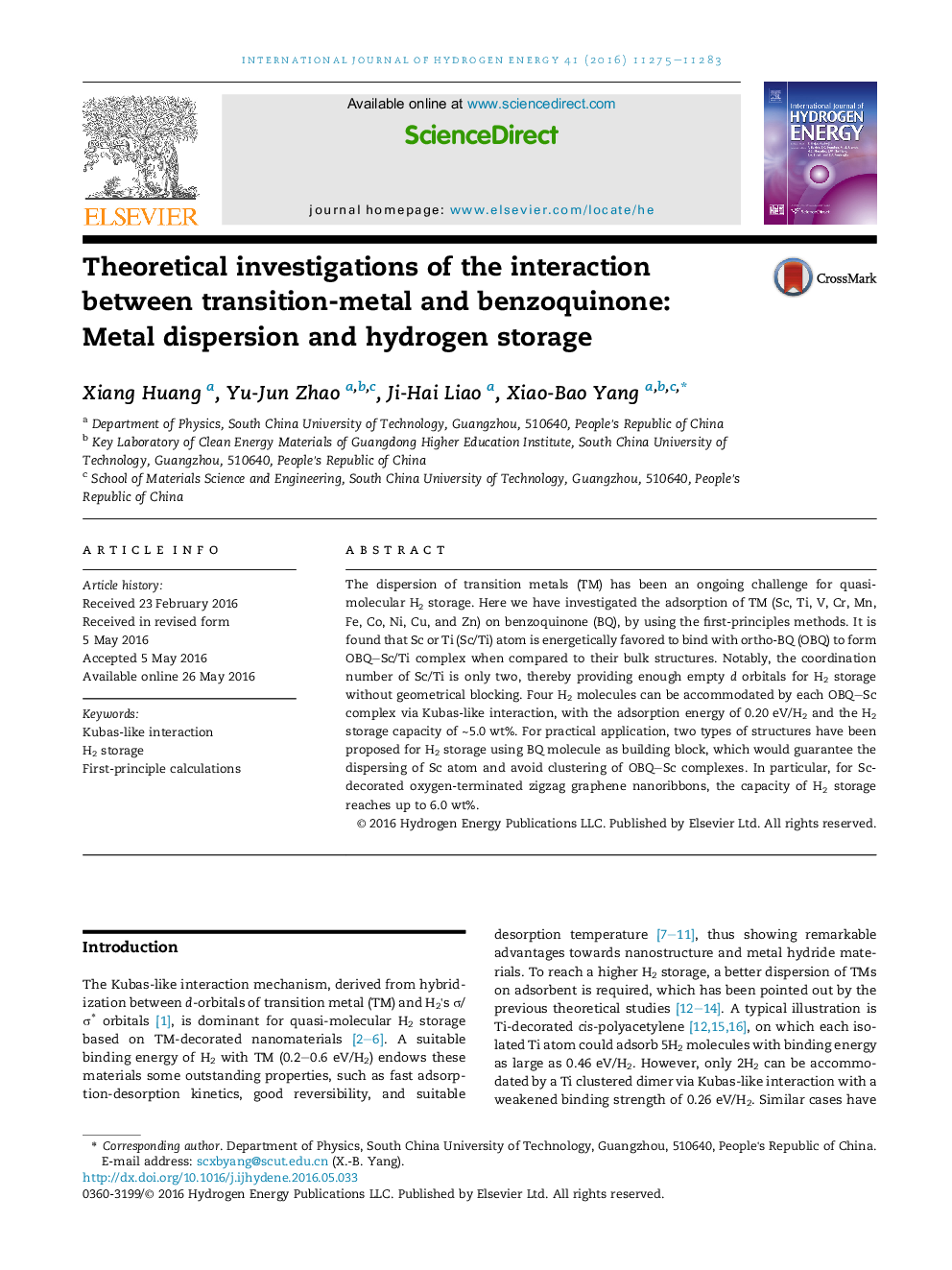| کد مقاله | کد نشریه | سال انتشار | مقاله انگلیسی | نسخه تمام متن |
|---|---|---|---|---|
| 1269559 | 1497399 | 2016 | 9 صفحه PDF | دانلود رایگان |
• The Sc or Ti (Sc/Ti) atoms can be dispersed by 1, 2-benzoquinone (OBQ) to form OBQ–Sc/Ti complex.
• The coordination number of Sc/Ti is only two, providing enough empty d orbitals for H2 storage.
• Four H2 molecules can be accommodated by each OBQ–Sc complex via Kubas-like interaction.
• For Sc-decorated oxygen-terminated zigzag graphene nanoribbons, the capacity of H2 storage reaches up to 6.0 wt%.
The dispersion of transition metals (TM) has been an ongoing challenge for quasi-molecular H2 storage. Here we have investigated the adsorption of TM (Sc, Ti, V, Cr, Mn, Fe, Co, Ni, Cu, and Zn) on benzoquinone (BQ), by using the first-principles methods. It is found that Sc or Ti (Sc/Ti) atom is energetically favored to bind with ortho-BQ (OBQ) to form OBQ–Sc/Ti complex when compared to their bulk structures. Notably, the coordination number of Sc/Ti is only two, thereby providing enough empty d orbitals for H2 storage without geometrical blocking. Four H2 molecules can be accommodated by each OBQ–Sc complex via Kubas-like interaction, with the adsorption energy of 0.20 eV/H2 and the H2 storage capacity of ∼5.0 wt%. For practical application, two types of structures have been proposed for H2 storage using BQ molecule as building block, which would guarantee the dispersing of Sc atom and avoid clustering of OBQ–Sc complexes. In particular, for Sc-decorated oxygen-terminated zigzag graphene nanoribbons, the capacity of H2 storage reaches up to 6.0 wt%.
Journal: International Journal of Hydrogen Energy - Volume 41, Issue 26, 13 July 2016, Pages 11275–11283
